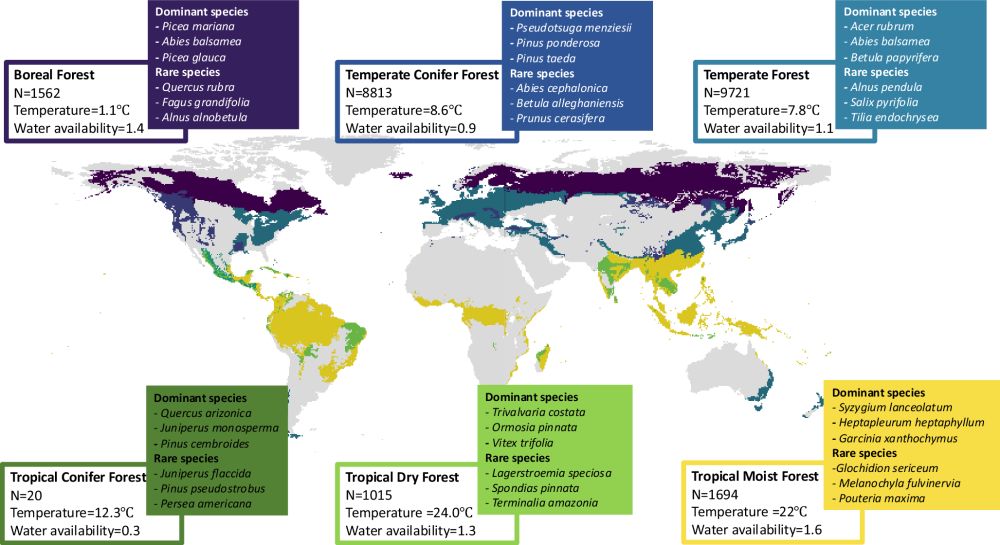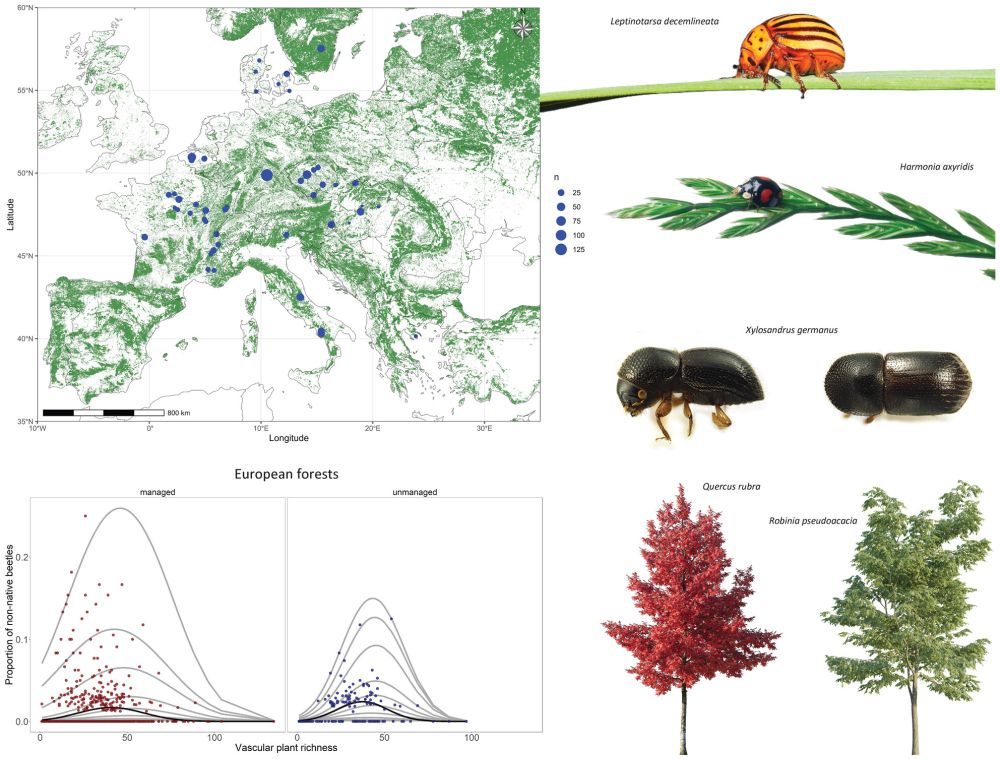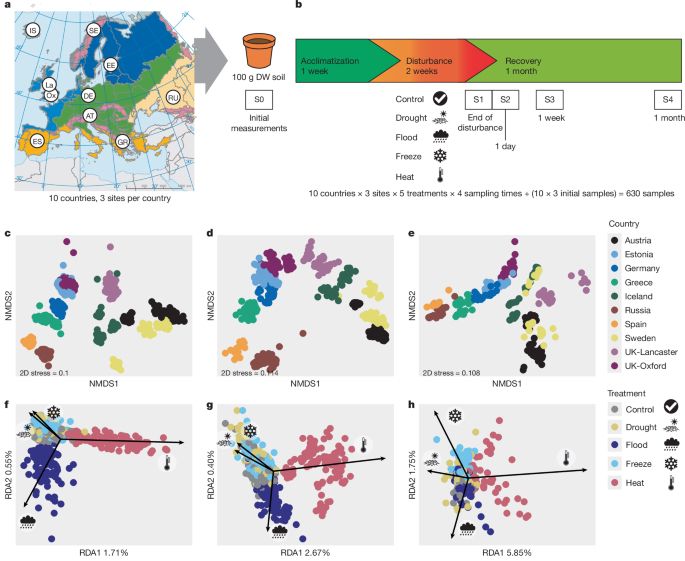Encaja en tu estudio?
Encaja en tu estudio?

#MarcoBasile led a study demonstrating:
- hump-shaped relationship between non-native beetle and #plant species richness;
- the proportion of non-native #beetles is higher in managed than in unmanaged #forests.
Read it here:
doi.org/10.1111/1365...

#MarcoBasile led a study demonstrating:
- hump-shaped relationship between non-native beetle and #plant species richness;
- the proportion of non-native #beetles is higher in managed than in unmanaged #forests.
Read it here:
doi.org/10.1111/1365...
#SilvaNova #NovoNordiskFoundation
onlinelibrary.wiley.com/doi/10.1111/...

#SilvaNova #NovoNordiskFoundation
onlinelibrary.wiley.com/doi/10.1111/...

Critical evaluation of how much European countries are using a triad scheme by both sharing and sparing in forest management planning
Spoiler 😈: not much!
link.springer.com/article/10.1...
Tks #TomNagel for leading this

Critical evaluation of how much European countries are using a triad scheme by both sharing and sparing in forest management planning
Spoiler 😈: not much!
link.springer.com/article/10.1...
Tks #TomNagel for leading this
Natural colonization in abandoned agricultural fields benefits native, insect-pollinated and bird-dispersed woody species
doi.org/10.1016/j.tf... #ForestEcology #rewilding

Natural colonization in abandoned agricultural fields benefits native, insect-pollinated and bird-dispersed woody species
doi.org/10.1016/j.tf... #ForestEcology #rewilding
#Wetlands #TeaComposition
doi.org/10.1021/acs....

#Wetlands #TeaComposition
doi.org/10.1021/acs....
tinyurl.com/mtrvr4h8
tinyurl.com/mtrvr4h8
www.nature.com/articles/s41...

www.nature.com/articles/s41...
The @FORESTEUROPE proposed indicators for forest biodiversity show only weak correlations with site-level species richness across a few taxa.
Insights from @Cost_BottomspUp, led by #YoanPaillet
eur02.safelinks.protection.outlook.com?url=https%3A...
The @FORESTEUROPE proposed indicators for forest biodiversity show only weak correlations with site-level species richness across a few taxa.
Insights from @Cost_BottomspUp, led by #YoanPaillet
eur02.safelinks.protection.outlook.com?url=https%3A...

